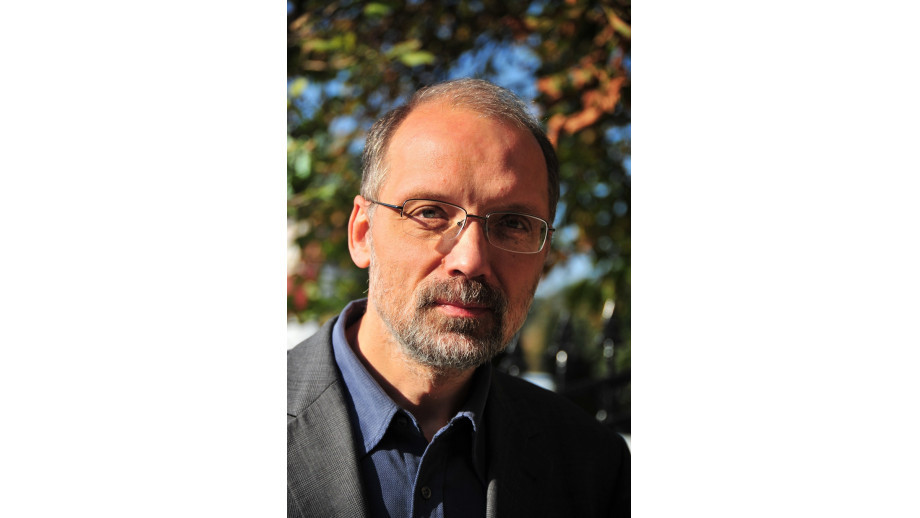News

Does Poland have to evoke only one association across the ocean – as the centre of the Holocaust? Is it possible to restore in its image the sense of pride, freedom, and energy that radiates from a portrait of Lisowczyk – The Polish Rider that can be admired in the Frick Collection in New York? Or maybe it is worth showing our Sarmatian heritage with a hint of self-irony, the Gombrowicz way, or even some kind of melancholy that a portrait of A Polish nobleman, in another museum, in Washington, also painted by Rembrandt, performs so perfectly? How to tear off the screws put to the ‘mugs’ of the Republic of Poland and show the true faces of its civic history?
These questions are asked by a small and sadly shrinking group of successors of the work of Wacław Lednicki, Czesław Miłosz, Wiktor Weintraub, Piotr Wandycz, and, for a moment also, Andrzej Walicki - professors of the best American universities who understood what Poland is and were able to present it to their students and readers in the broader context of interpreting European culture and world politics. To present, that is to translate the Polish cultural heritage into the language of the culture to which it is addressed. Ewa Thompson is the most valiant Amazon Warrior in this group. In an academic world, increasingly terrorised and numbed by political correctness, she is an example of civil courage and intellectual bravery.
Where does she draw her strength from? I don’t know, I can only guess. Born in 1937 in Kaunas, Lithuania, as a child, she experienced the fate which was written for millions of her and her parents' generation in Stalin's pact with Hitler, signed in Moscow exactly two years later. The displacement from the family land was the most lenient possible outcome of this fate. Katyn, Kolyma, Auschwitz, camps in the Kazakh Steppe - these were the stations where the life story of millions was to end. But also the history of Poland, as well as Lithuania, and several other historical and cultural communities that have been formed over the centuries in those lands that a certain American historian has aptly called ‘bloodied’. These are the lands of the former, great Republic of Poland.
The Polish head, however, which was to be cut off definitively, kept growing back, even in the times of the People's Republic of Poland, where Ewa Majewska found herself to be. Through a music conservatory, Polish and Russian studies at the University of Warsaw, in the Gomułka times, she was able to take a step towards individual freedom - outside the world of Gomułka, to America.
A PhD at Vanderbilt University in Nashville, an academic position at the noble University of Virginia, and finally professorial stability at Rice University in Houston. And what next? Wait for retirement in peace? No. How to talk about Poland, its culture, its literature, when it is only Russia that arouses interest, the ‘fascinating Soviet experiment’, just like it was earlier the case of the great achievements of Frederick II, Bismarck, the great culture of ‘Kulturkampf’? With the support of her husband, an excellent mathematician and statistician, James, Professor Ewa Thompson is not giving up. Not only does she show in her works the curvature of the Russian prism through which the landscape of smaller nations conquered by Moscow is perceived; not only does she present Polish literature in such a way that she could – at least with Gombrowicz – raise the interest of academic audiences in the United States, who love to read about new theories. She also creates a forum for meeting those who want to go beyond anti-Polish stereotypes in science and culture. For 37 years, she has been publishing The Sarmatian Review: a magazine which intellectually brings to life the legacy of The Polish Rider: freedom, pride, energy of the never dying Republic of Poland. In the magazine, she prints many translations of Polish literature into English. Ewa Thompson is tirelessly looking for ways to tell this legacy in Anglo-Saxon, academic, and political categories that are understandable to the audience. She is looking for... the perfect translation? Maybe it can be done through the prism of colonialism theory? It should be remembered that not only Africa and Asia were colonised, but also, since the 18th century, the lands and people of the Republic of Poland were the subject of Russian and German colonialism. It is also necessary to remind a large part of the elite in Poland of their post-colonial origin and phobias. Not to condemn, but to help get out of this state. That is why Professor Thompson organised scholarship stays in Rice and encouraged young Polish scholars to take advantage of them in order to prepare them for work in this difficult realm. And among them were, to name a few, Andrzej Waśko, Piotr Wilczek, Dariusz Skórczewski and many others - these names mean something today in Polish, academic, cultural, and political reality.
Does this reality give a better chance to spread the wings of The Polish Rider also beyond the ocean? It remains to be seen. But not on its own. Because nothing will be seen on its own. History and culture are created by people. They also create them - by telling, interpreting, reaching, effectively or not, the mind, the imagination, the hearts of the recipients of these stories. Professor Thompson's passion for translating this story into the language of the American, or perhaps more broadly, Western elites for nearly 60 years deserves an award. Let this fact remain a sign of hope: this Award’s patron is Trans-Atlantyk, not Sisyphus.
Commendation of Professor Andrzej Nowak for Professor Ewa Thompson on the occasion of granting her the Transatlantyk Award.